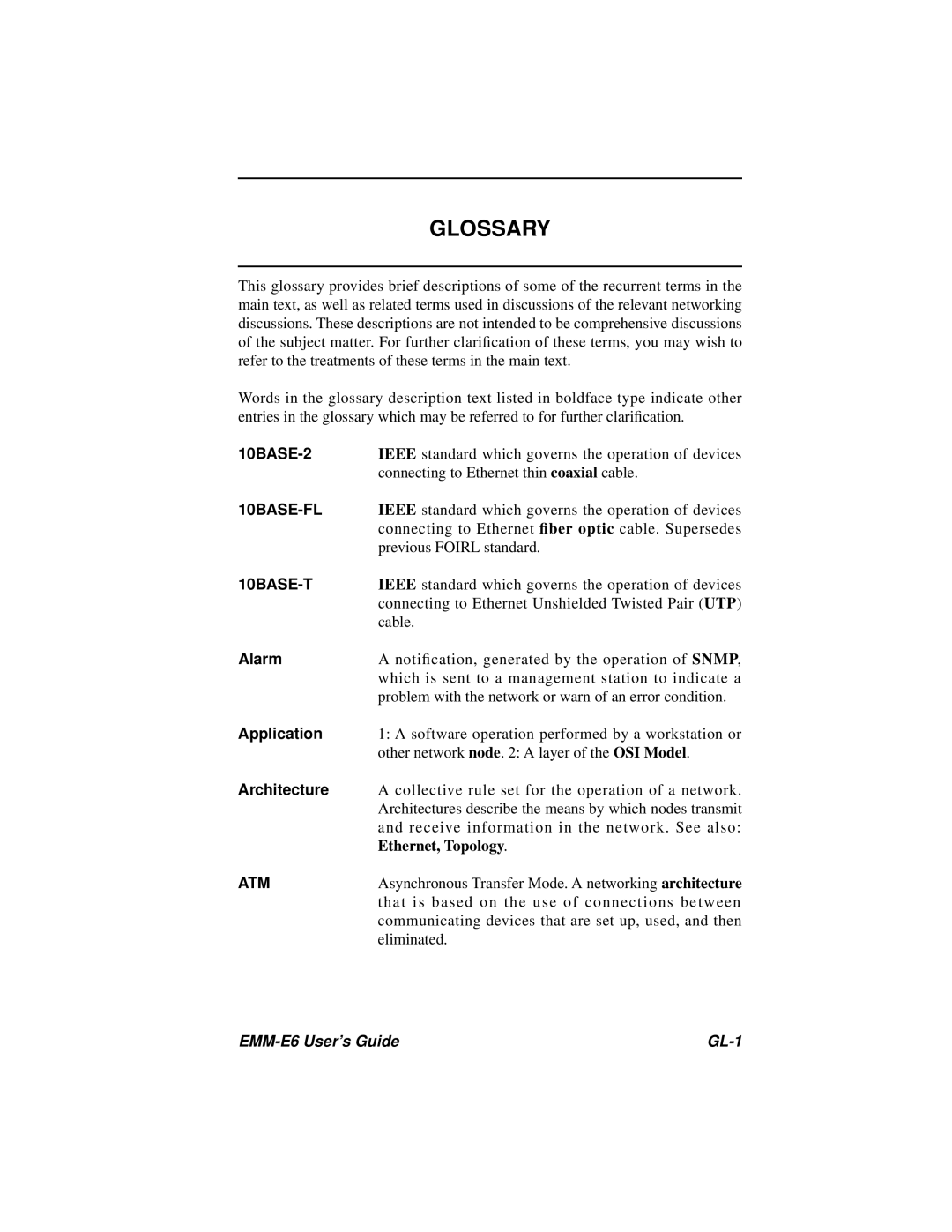
GLOSSARY
This glossary provides brief descriptions of some of the recurrent terms in the main text, as well as related terms used in discussions of the relevant networking discussions. These descriptions are not intended to be comprehensive discussions of the subject matter. For further clarification of these terms, you may wish to refer to the treatments of these terms in the main text.
Words in the glossary description text listed in boldface type indicate other entries in the glossary which may be referred to for further clarification.
| IEEE standard which governs the operation of devices |
| connecting to Ethernet thin coaxial cable. |
| IEEE standard which governs the operation of devices |
| connecting to Ethernet fiber optic cable. Supersedes |
| previous FOIRL standard. |
| IEEE standard which governs the operation of devices |
| connecting to Ethernet Unshielded Twisted Pair (UTP) |
| cable. |
Alarm | A notification, generated by the operation of SNMP, |
| which is sent to a management station to indicate a |
| problem with the network or warn of an error condition. |
Application | 1: A software operation performed by a workstation or |
| other network node. 2: A layer of the OSI Model. |
Architecture | A collective rule set for the operation of a network. |
| Architectures describe the means by which nodes transmit |
| and receive information in the network. See also: |
| Ethernet, Topology. |
ATM | Asynchronous Transfer Mode. A networking architecture |
| that is based on the use of connections between |
| communicating devices that are set up, used, and then |
| eliminated. |
